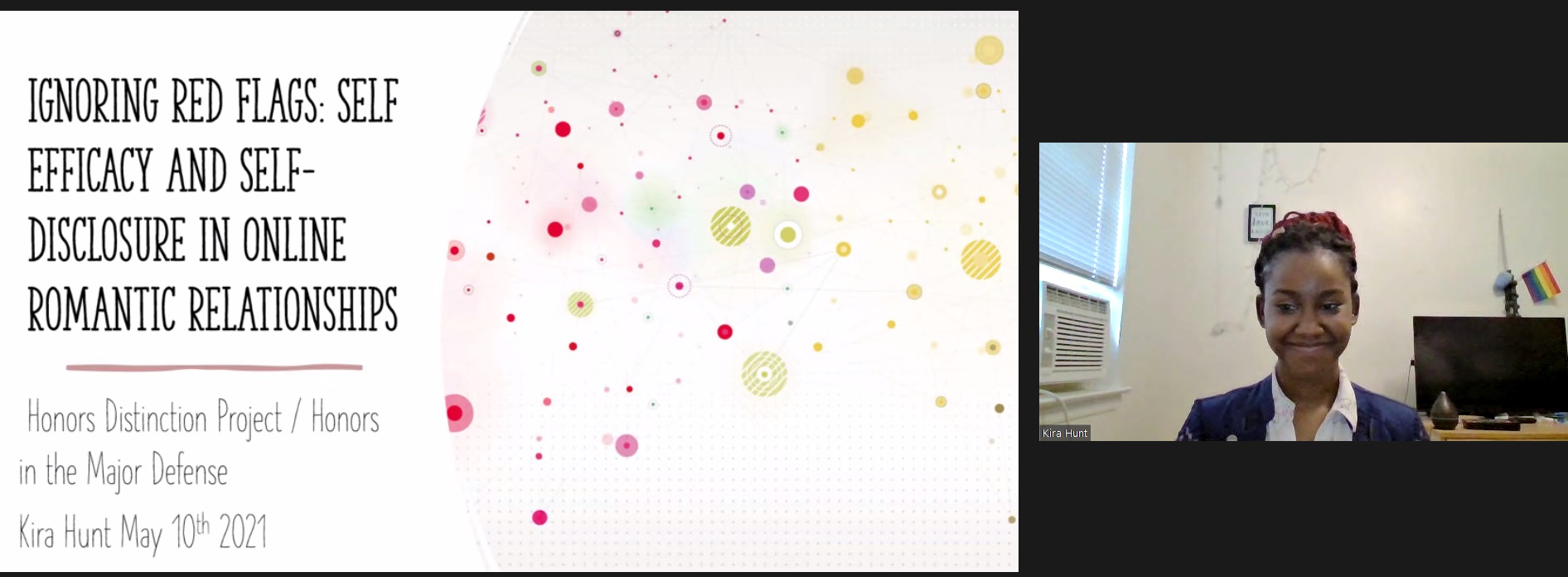
On May 10th, Kira Hunt successfully defended her Honors in the Major and Honors Distinction Project. Congratulations Kira! The psychology department faculty/staff and your fellow departmental student assistants are so proud of you.
Her project was titled: “Ignoring Red Flags: Self Efficacy and Self-Disclosure in Online Romantic Relationships”. In addition to a successful defense, Kira completed an impressive two-lab project working in both Dr. Powell and Dr. Nichols’ labs. Her work beautifully combines aspects from multiple disciplines, including psychology and sociology.

Project Abstract:
With the advancement of technology, dating has changed drastically, especially for emerging adults who make up a considerable portion of online daters. However, dangers surrounding dating someone met online (e.g., misrepresentation) are a major concern. Additionally, without the social cues usually gathered from face-to-face interactions, individuals often have intense feelings of intimacy and are more willing to self-disclose more than in face-to-face interactions. The first study aimed to examine if romantic self-efficacy and target attractiveness impacted the likeliness to self-disclose in online initiated relationships. There were no significant differences in likelihood to self-disclose based on romantic self-efficacy or target attractiveness. However, likeliness to disclose did appear to be affected by whether misleading information was included, and the depth or level of the information being disclosed. The second study utilized electroencephalogram (EEG) to determine if target attractiveness and presence of misleading information impacted brain activity. There were no significant differences in brain activity based on target attractiveness or vignette type, nor was amount of self-disclosure associated with brain activity. Although most of the hypotheses were unsupported, the current study suggests more research needs to be done to determine what characteristics of individuals or of potential partners might influence online dating behaviors (e.g., falling victim to online romance scams).
.
.
.